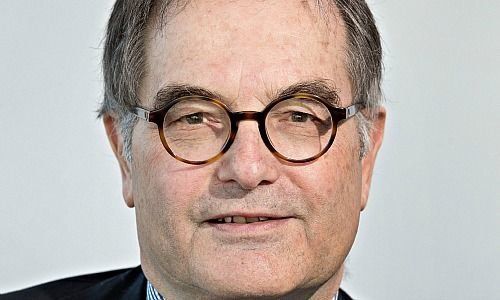Peter Kurer: «Europe's Short Stormy Summer»
Former UBS chairman Peter Kurer embarked on European travels full of optimism, but he returned in a more pensive mood. He parses Europe's troubles and what they mean for Switzerland in his exclusive essay for finews.first.
finews.first is a forum for renowned authors specialized on economic and financial topics. The texts are published in both German and English. The publishers of finews.com are responsible for the selection.
The pious pilgrim who reaches Santiago de Compostela after a long, tiring hike may well choose Rúa das Orfas to reach the cathedral as the final destination of his pilgrimage. The banner that stretches the road can't be overlooked: «Independência para a Galiza». Mariano Rajoy will know it, because he Galician and has been born in Santiago.

The banner may say more about why the Spanish prime minister reacts as vehemently as he does to the secession moves in Catalonia as any academic research paper. He knows very well that one day, it won’t be just Catalonia, but the whole of Spain including Galicia that will come crashing down.
«'Andate in pace' for Europe»
More about that later, but first things first: in springtime, this European traveler reported from Rome, taking cue from the 60th birthday of the European Union. He finished off by visiting the Basilica Santa Maria del Popolo, where the priest left the words «La messa e finite, andate in pace» with his flock. I reported those words very much as referring to the situation of the EU.
During spring and summer, things looked brighter in the EU. Economic indicators and the prices of European equities pointed upwards, within France, a new guiding light in France won the presidential elections, the EU increasingly gained the upper hand in the negotiations with the U.K., while the British Brexiteers were put on the back foot step by step. In Germany, another victory for the chancellor seemed given, promising stability and more scope of action to Europe. The EU supporters gained the upper hand.
«Sensitive eurocrats dismiss Swiss-EU tensions»
In May, we witnessed Elmar Brok in an almost festive mood in Zurich. Sitting easily on his chair, a cheerful tie some one-and-a-half meters long sitting on his sizable belly, he willfully jested about the British. Answering to the shy question whether Brexit might not yet also be negative for the EU, he continued to heap scorn upon the Brits. A further question about the tense relationship between the EU and Switzerland he brushed aside with a curt «ah, let’s leave that aside», adding that he now had to go home. That’s how sensitive Eurocrats can behave.
In mid-September, Jean-Claude Juncker held a speech about the future of Europe. Here too, hardly any sense of ruefulness or criticism, but mainly a mood of optimism and a rallying cry to take Europe forward. Shortly thereafter came Macron and doubled up with his call for a European future.
«Europe: right down to the quality of your fish fingers»
It would be difficult to overlook the big difference between Juncker and Macron though – in the two speeches but otherwise too. Juncker developed a picture of a Europe under the guidance of the commission with eager civil servants carefully coordinating and harmonizing the different interests and economic realities in the countries with their bureaucratic fine-tuning, right down to the quality of your fish fingers. Macron by contrast envisions a Europe led by heads of state – presumably mainly by himself – concentrating mainly on a few choice aspects: a common security policy, an European budget along a European finance minister as well as a common trade policy.
After having been to the founding place of Europe in Rome, I took the optimistic mood as a pretext to visit the periphery of the continent for a change: Poland, the Czech Republic, Serbia, Croatia, Northern Spain, England, Austria, the east of Germany, Venice and the Bordeaux region became the targets of my travels this summer.
«Europe's problems have caught up with the bloc»
The sustainability of an empire will show at the very ends of its territory. Now I sit in a house snuggling the stiff cliffs of the eastern cost of Ireland. Ophelia is holding us hostage. At dawn, the mighty and almost tropical hurricane reaches land along the western cost, swirling with all its destructive force across the island and finally meeting a stormy sea across the eastern seaboard. In the lee side in our house on the cliffs, we are safe, but aren’t allowed to leave. In the evening, all is back to normal.
I took the captivity induced by the winds as opportunity to think some more about the past summer in Europe: the European summer was short. In autumn, its problems caught up with the continent. In Germany, the far-right took more seats than expected and the chancellor is considerably weakened domestically; her European powers have been pared substantially as a consequence. In Austria, the Freedom Party is dominating politics, a grouping mainly controlled by German nationalist fraternities.
«Catalonia is the tip of the iceberg»
- Page 1 of 2
- Next >>




















